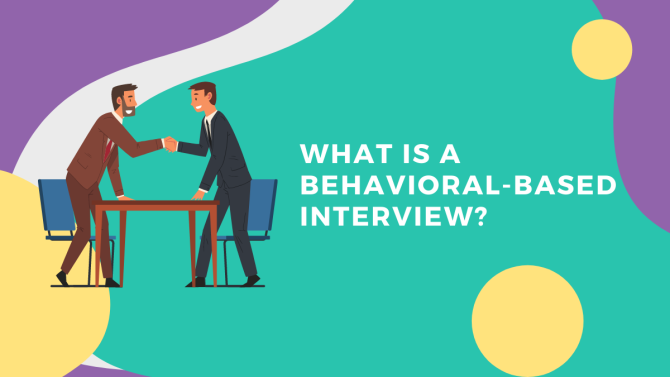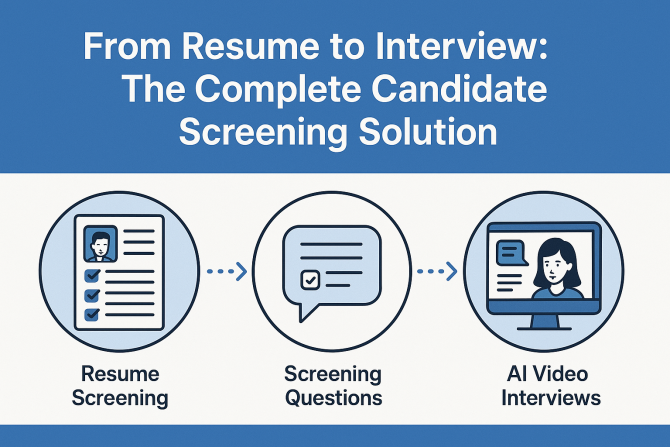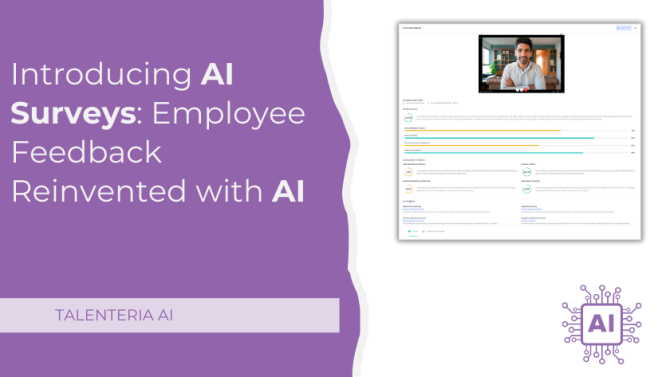
So, your killer CV and cover letter have gotten you through to the interview stages. You’ve beaten hundreds, possibly thousands of applicants already. Success is almost in reach. Only a few questions stand between you and that coveted job. Failing to prepare is preparing to fail, and that is why you’re here. Don’t fear, though! We’ll walk you through the preparation process and give you actionable techniques for answering behavioral interview questions.
Behavioral-based interviews are widely thought of as the most challenging of all interview types. The questions they entail can seem personal, deceptively open-ended, and sometimes outright confusing. Want to understand the purpose behind behavioral interviews? Learn a proven method to construct ideal answers? Get top tips on how to prepare? If you answered yes to all of these questions, read on.
A Definition
Developed by psychologists in the 1970s, behavioral-based interviews aim to assess a candidate's potential to succeed in a job based on how they handled situations previously. Generally, questions are geared towards giving candidates the opportunity to tell a story from a previous work-related situation. The focus is to gain insight on how a candidate behaved and their thought process when faced with a specific scenario to help employers predict how well the candidate will perform under similar circumstances in the future should they be hired.
S.T.A.R Technique for Answering Behavioral Interview Questions
The STAR method is a well-known, four-step process used to systematically construct effective answers in response to behavioral interview questions. The name of the algorithm is an acronym that serves as a mnemonic device to help you remember the steps even under the glaring pressures of an interview. The steps are:
1. Situation – explain the situation in which the event occurred, including all necessary details.
2. Task – identify the task or challenge that you were assigned or came up against.
3. Action – explain the action you took to complete or tackle the task or challenge.
4. Result – reveal the outcome achieved from the action you had taken.
Behavioral vs. Traditional Interviews
Traditional interviews used to be the main and sometimes only vetting tool for deciding who to hire. They typically consist of simple and generic questions that tend to have straightforward answers. Examples of questions that may pop up during a traditional interview are:
- Tell me about yourself.
- How would a good friend describe you?
- Why did you decide to seek a position in this company?
The purpose of these questions is mainly to get to know the prospective candidate better and verify necessary skills and traits. These interviews usually reward those with charisma, confidence, and the ability to cope with pressure. But while these qualities make a candidate an attractive choice, they do not necessarily reflect upon the relevant competencies and aptitudes needed to perform well in the role. These interviews are also more subject to interviewer bias. This has led to much scrutiny on the effectiveness of traditional interviews in the selection process.
Behavioral Interview Questions
Here are some other common behavioral interview questions:
- Can you think of a time there was a conflict in a team you were on? How did you deal with that?
- Has there ever been a time when you went above and beyond to ensure a customer's satisfaction?
- Tell me about a time when you had to deal with a difficult customer. What was the situation, and how did you deal with it?
- Describe a time when you managed to complete a long-term project. How were you able to do so while still meeting daily targets and deadlines?
- When you set a goal for yourself, what are the steps you take to ensure you reach it? Give an example.
- How do you cope with pressure? Can you give me an example?
- Tell me a time when you had to explain something quite complicated to a frustrated customer or client. How do you navigate delicate situations like this?
As you can see, behavioral questions are all about prompting you to tell a story or anecdote. The scenarios they are looking for you to talk about should ideally take place in a work environment. For candidates with little to no work experience, your anecdotes should be based on situations in college, in voluntary roles, part-time jobs, or extracurricular activities. Sometimes a family situation may be applicable but be careful not to go off-point or get too personal.
Think critically about what skills these questions are used to look for. Your answers should directly demonstrate the skill they want. To get a good idea of what questions might turn up, identify what skills are integral to the position.
- Teamwork – examples of interpersonal and social skills or how you handled project constraints.
- Client-Facing Skills – examples of when you delivered excellent customer service.
- Adaptability - competencies in navigating through a work crisis. If your navigation was unsuccessful, explain what you learned from the experience.
- Time Management – examples of effective multi-tasking or strategies that you use to juggle numerous responsibilities successfully. If you also were able to exceed expectations, make sure to mention that too!
- Communication Skills – detail your thought process and preparation.
- Motivation and Values – explain what drives and motivates you.
How to Prepare for a Behavioral Job Interview
It may be a daunting task for many people to know where to begin preparing for a behavioral interview.
Here are some top tips:
- Identify key competencies and attributes required for the position by examining the job description closely. Rank these in order of importance.
- Reflect on past work scenarios where you were able to demonstrate these competencies and attributes.
- Make a life of your achievements, then reverse engineer them to define the steps you took to attain them.
- Review previous performance reports for inspiration.
- Think back to past failures or difficult challenges to construct examples that showcase your ability to overcome adversity and your capacity for growth.
The hard work you put into preparing for behavioral interviews will extend beyond the interviews themselves. Not only will the well-crafted STAR answers help you to impress at networking events, but they can also be used to write a pretty snazzy online professional profile. For more information on how to nail different types of job interviews, check out our other articles on Talenteria.





